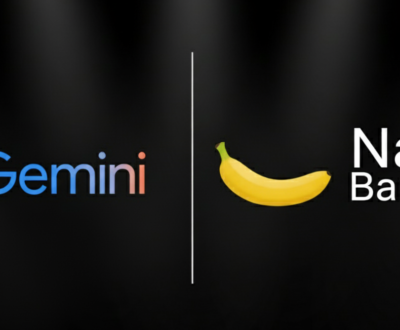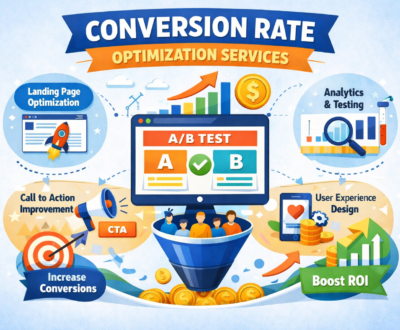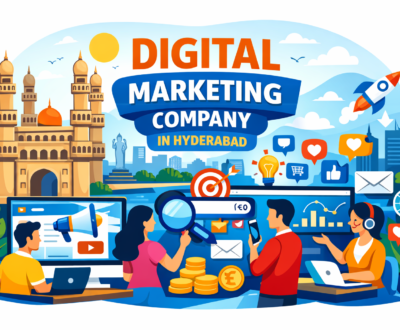Retail Social Media Strategy: Going Beyond Aesthetic Posts to Drive Real Sales
- November 20, 2025

Introduction
The retail industry has undergone a rapid transformation, shifting from traditional shelf-based competition to a hyper-digital environment where audience attention, content relevance, and platform behavior influence business growth. Modern retail brands cannot rely on visuals alone, because customers no longer make decisions based only on how good a product looks online. They make decisions based on trust, positioning, information accuracy, and the clarity of their buying journey. This is where a well-structured Social Media Strategy becomes essential. A retail business needs more than attractive photos; it needs a holistic, technically strong, data-driven content system that guides a user from discovery to purchase. Retail-specific digital behaviors are different from those in other industries, which means the approach must be strategically built, consistently executed, and continuously optimized.
Common Question Asked:
What are the 7 C’s of social media?
According to Knowledge Enthusiast, the 7 C’s of social media marketing are community, content, curation, creation, connection, conversation, and conversion. Understanding these C’s and what each means helps marketers thrive on social media.
Why Aesthetic Content Alone Fails to Convert
Retail platforms like Instagram and Facebook are filled with well-curated feeds, perfectly designed grids, and highly aesthetic imagery. While such content is visually impressive, it offers limited commercial value without messaging that communicates product relevance. In retail, emotional influence and functional clarity go hand in hand. A potential buyer may appreciate a beautifully photographed product, but unless they understand its purpose, features, advantages, and availability, the journey from engagement to conversion remains incomplete. Aesthetic-centric marketing also fails because it does not address platform algorithms, audience intent signals, or the sales-oriented storytelling required to move users through the decision funnel. As a digital marketing company in Rajkot with extensive experience in the retail landscape, we see many businesses struggle because they depend on visuals without applying strategy.
The Shift Toward Data-Driven Retail Marketing
Retail success on social platforms depends heavily on data behaviors—what users search, what formats they interact with, the timing of their activity, and the kind of content that influences them. A strong Social Media Strategy integrates data insights with content direction. Retail businesses must understand buyer personas across age, geography, and purchasing power. For example, a brand targeting metropolitan consumers behaves differently compared to one focused on Tier-2 buyers. A retailer working with an advertising company in Ahmedabad, a digital marketing services provider in Vadodara, or a Digital Marketing Company Mumbai must analyze region-specific behaviors because local content perception varies widely across India. When data is interpreted accurately, the brand can identify which product categories gain traction, which storytelling styles resonate, and which formats drive conversions—allowing them to build authoritative and scalable campaigns.
Building a Technical Foundation for Retail Social Content
A retail brand cannot depend solely on visual creativity. The technical side of content planning is equally important. This includes platform algorithms, audience segmentation, tone mapping, content layering, remarketing pathways, and keyword integration. A technically sound Social Media Strategy ensures that every post is connected to a purpose—brand education, product detailing, trust building, or direct conversion. Local SEO also plays a crucial role, particularly for hybrid retailers. For example, using local SEO for real estate agents helps agents target regional buyers; similarly, retail stores must apply localized digital signals to increase footfall and online visibility. When platforms recognize location relevance, customers searching for certain retail categories are more likely to find the brand. This combination of technical optimization and meaningful storytelling defines modern retail marketing.
Content Intelligence and Consumer Psychology in Retail
Retail buying decisions are heavily influenced by psychology. Customers want clarity, proof, relatability, and ease of access. Content intelligence ensures that messaging aligns with consumer expectations. Relying on emotional imagery alone is not sustainable. Instead, retail brands need to produce narrative-rich content that explains product usage, highlights benefits, addresses buyer concerns, and positions the brand as a solution provider. Many brands choose the Top Digital Marketing Company in India to help them align messaging with behavior analytics. Others prefer working with a top digital marketing agency in Pune or an ad agency in Rajkot depending on their expansion plans. Regardless of the partner, the strategy must be consistent: use intelligence-driven content to influence the buyer in a structured manner. When the brand demonstrates understanding, reliability, and expertise, conversions increase organically.
Sales-Focused Retail Execution Across Platforms
Driving sales through social media requires each platform to play a defined role. Instagram may function as a primary discovery engine, where visual identity and storytelling attract audiences. Facebook helps retailers penetrate local communities, engage repeat buyers, and promote geographically targeted campaigns. YouTube offers opportunities for long-form education, product demonstrations, reviews, and trust-building content. A brand’s Social Media Strategy must connect all platforms through consistent communication themes and structured call-to-action pathways. Retailers working with the best SEO for small businesses often combine organic search strength with social storytelling, enabling customers to discover the brand through both search engines and social platforms. When search and social signals work together, the overall conversions increase significantly.
Pan-Indian Digital Marketing Perspective for Retail Growth
Retail businesses that operate across cities or plan to scale beyond local boundaries must adopt a region-specific approach to digital marketing. The communication style, consumer expectations, and retail behavior differ across locations. A campaign designed with insights from an advertising company in Ahmedabad may require adjustments before being deployed in Mumbai or Pune. Similarly, email marketing in India shows varied engagement rates depending on the region and product type. Retailers must analyze open rates, click behavior, and automated funnels when integrating email marketing into their broader strategy. Brands expanding into Gujarat often rely on a digital marketing company in Rajkot or digital marketing services in Vadodara, while those targeting Maharashtra explore collaborations with a Digital Marketing Company Mumbai or a top digital marketing agency in Pune. This geographical adaptability makes the retail narrative stronger, more personalized, and more commercially viable.
Integrating SEO, Social Media, and Brand Storytelling
A retail brand’s online ecosystem becomes powerful only when SEO, social media, and brand storytelling work together. Social platforms help with engagement, trust, and fast visibility, while SEO provides stability, long-term ranking, and non-paid traffic growth. Retailers who use local SEO for real estate agents can apply similar localized methodologies to their stores, generating better footfall and online conversions. Combining organic strength with an active Social Media Strategy increases search visibility, improves ranking signals, and boosts authority across platforms. This alignment ensures that a buyer who discovers a retail brand through search also reconnects with it on social platforms and eventually ends up purchasing. The integration of search, content, and storytelling becomes the backbone of sustainable digital retail growth.
Conclusion
Retail success on social media requires more than impressive visuals and trending formats. A brand that wants sustainable conversions must adopt a comprehensive, data-backed, and technically sound approach. When a retailer builds a structured Social Media Strategy supported by SEO, regional insights, content intelligence, and behavioral understanding, it transforms social platforms from creative outlets into strong revenue channels. The Indian digital ecosystem offers immense opportunities through city-specific expertise, whether through a digital marketing company in Rajkot, an ad agency in Rajkot, digital marketing services in Vadodara, an advertising company in Ahmedabad, a Digital Marketing Company Mumbai, or even the Top Digital Marketing Company in India. The future of retail marketing belongs to brands that combine creativity with strong strategy, emotion with information, and aesthetics with measurable business outcomes. Real sales happen when the brand communicates with intention, not just decoration.
Because it connects visuals, messaging, and buyer psychology to drive real sales rather than just engagement.
Aesthetic posts help visibility, but without strategic messaging and intent they rarely lead to sales.
Data helps understand customer behavior, peak engagement times, content preferences, and purchase intent.
SEO builds long-term visibility while social media drives engagement; together they increase conversions.
Yes, email marketing in India remains a strong channel for retargeting, offers, and customer retention.









